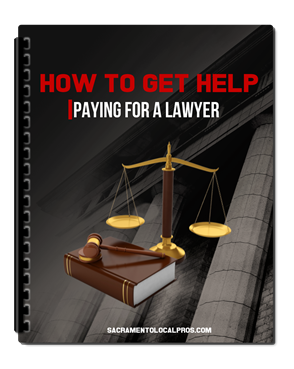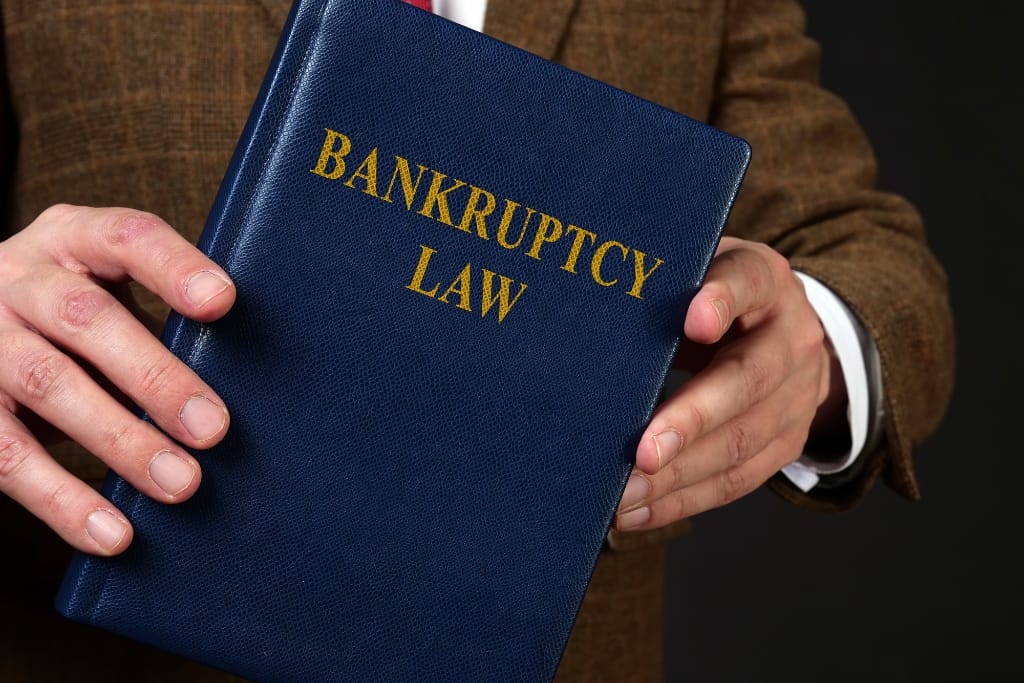Facing bankruptcy can be a stressful and overwhelming experience. During this difficult time, having a knowledgeable and experienced bankruptcy lawyer by your side is crucial to guide you through the process.
With the sheer number of lawyers available, identifying the best one for your specific needs can be daunting.
This article offers practical advice and key considerations to help you find a top-tier bankruptcy lawyer who can provide the support and expertise you need to navigate these challenging times.
1)) Research And Compare
Start by researching different bankruptcy lawyers in your area. Look for their experience, reputation, success rate, and client reviews.
Make a list of potential candidates and compare them based on these factors.
Tips for Researching and Comparing Bankruptcy Lawyers:
- Verify Credentials: Check that the lawyer is licensed and in good standing with the Bar Association. Ensure they specialize in bankruptcy law.
- Check Experience: Look into how many years the lawyer has been practicing and their experience specifically with bankruptcy cases.
- Read Client Reviews: Search for reviews and testimonials from former clients to get a sense of the lawyer's reputation and client satisfaction.
- Assess Communication: Consider how responsive and communicative the lawyer is during your initial interactions. Good communication is essential in legal matters.
- Evaluate Success Rates: Inquire about the lawyer's track record of success in handling bankruptcy cases similar to yours.
After thoroughly researching and comparing different bankruptcy lawyers, you'll be better equipped to make an informed decision.
Taking the time to verify credentials, check experience, read client reviews, assess communication skills, and evaluate success rates ensures that you find a lawyer who is not only qualified but also a good fit for your specific needs.
Remember, the right lawyer can make a significant difference in navigating the complexities of bankruptcy.
2)) Specialization
Choose a lawyer who specializes in bankruptcy law. This ensures that they have the necessary expertise and knowledge to handle your case effectively.
Tips for Choosing a Bankruptcy Law Specialist:
- Confirm Specialization: Ensure that the lawyer’s primary focus is bankruptcy law, rather than general practice or another specialty.
- Certifications: Look for additional certifications or memberships in professional organizations related to bankruptcy law, such as the American Board of Certification.
- Continuing Education: Check if the lawyer actively participates in seminars, workshops, and continuing education programs specific to bankruptcy law.
- Case Portfolio: Review the lawyer's portfolio of past bankruptcy cases to gauge their depth of experience and expertise in this area.
- Peer Recognition: Seek out any accolades or awards from peers in the field of bankruptcy law, which can indicate a high level of respect and competence within the legal community.
After considering specialization, you’re one step closer to finding the right bankruptcy lawyer for your needs.
Emphasizing specialization ensures that your lawyer has the dedicated knowledge and experience necessary to handle the intricacies of bankruptcy law.
By confirming specialization, checking certifications, reviewing continuing education, examining case portfolios, and recognizing peer recognition, you’ll be well on your way to securing expert legal representation to guide you through the bankruptcy process efficiently and effectively.
3)) Free Consultation
Many bankruptcy lawyers offer free initial consultations. Take advantage of these consultations to meet with potential lawyers, discuss your case, and ask any questions you may have.
Tips for Making the Most of a Free Consultation:
- Prepare Questions: Before the consultation, prepare a list of specific questions about your situation and the lawyer's approach to handling bankruptcy cases.
- Bring Documentation: Take relevant documents with you, such as financial statements, debts, and income records, to provide the lawyer with a clear overview of your case.
- Assess Compatibility: Use this opportunity to gauge whether you feel comfortable with the lawyer and confident in their ability to represent you.
- Understand Fees: Clarify the lawyer's fee structure, including any potential hidden costs and payment plans, to ensure their services fit within your budget.
- Evaluate Honesty and Transparency: Pay attention to how openly the lawyer communicates and whether they provide realistic expectations about your case's outcome and process.
Taking advantage of a free consultation is a valuable step in the process of selecting the right bankruptcy lawyer.
By preparing questions, bringing pertinent documentation, assessing compatibility, understanding fees, and evaluating the lawyer's honesty and transparency, you can gather essential information to make an informed decision.
This initial meeting not only helps you understand your case better but also ensures that you choose a lawyer who will provide effective and compassionate representation throughout your bankruptcy journey.
4)) Fee Structure
Discuss the fee structure with potential lawyers upfront. Some lawyers charge a flat fee for their services, while others charge by the hour.
Make sure you understand how much you will be charged and what services are included in the fee.
Tips for Understanding a Lawyer's Fee Structure:
- Clarify Payment Model: Determine whether the lawyer charges a flat fee, or hourly rate, or uses another payment model, and understand what each entails.
- Request a Fee Breakdown: Ask for a detailed breakdown of the services included in the fee to ensure transparency and avoid unexpected costs.
- Inquire About Additional Costs: Find out if there are any additional fees, such as court costs, filing fees, or charges for extra consultations, that could increase the overall cost.
- Discuss Payment Plans: If the fees are substantial, ask about the possibility of setting up a payment plan to make the costs more manageable over time.
- Get Everything in Writing: Ensure that all fee agreements and payment terms are documented in writing to protect both parties and provide a clear reference throughout the case.
Understanding a lawyer's fee structure is crucial to avoid any financial surprises during your bankruptcy case.
By clarifying the payment model, requesting a fee breakdown, inquiring about additional costs, discussing payment plans, and getting everything in writing, you can navigate the financial aspects of hiring a lawyer with confidence.
This clarity not only helps you plan your finances better but also ensures that both you and your lawyer are on the same page from the outset, fostering a transparent and professional relationship.
5)) Communication
Choose a lawyer who is responsive and communicates effectively with you throughout the process.
You want someone who will keep you informed and answer any questions or concerns you may have promptly.
Tips for Ensuring Effective Communication:
- Establish Preferred Communication Channels: Determine the best ways to contact your lawyer, whether by phone, email, or in-person meetings, and agree on how frequently you will communicate.
- Set Clear Expectations: Discuss and set clear expectations for updates and responses, including how quickly the lawyer will get back to you with answers to your questions.
- Keep Records: Maintain a record of all communications, including emails, letters, and notes from phone conversations, to have a clear history of discussions and decisions.
- Ask for Clarification: Don’t hesitate to ask for clarification on any points you don’t understand; ensure the lawyer explains legal terms and procedures in layman’s terms.
- Schedule Regular Updates: Arrange for regular progress updates to stay informed about the status of your case and any new developments that may arise.
Effective communication is a cornerstone of a successful attorney-client relationship.
By establishing preferred communication channels, setting clear expectations, keeping thorough records, seeking clarification when needed, and scheduling regular updates, you can ensure that you remain well-informed and confident throughout the legal process.
This proactive approach to communication helps build trust and ensures that your lawyer can provide the best possible representation for your bankruptcy case.
6)) Trust Your Gut
Pay attention to your instincts when meeting with potential lawyers. You should feel comfortable with your lawyer and trust them to represent your best interests.
Tips for Trusting Your Gut When Choosing a Lawyer:
- Assess Initial Impressions: Pay attention to how you feel during your first meeting; a positive initial interaction is often indicative of a good working relationship.
- Gauge Comfort Levels: Ensure you feel comfortable and relaxed when discussing personal matters and legal concerns with the lawyer.
- Observe Communication Style: Notice if the lawyer listens attentively and communicates clearly; you should feel heard and understood.
- Evaluate Responsiveness: Check if the lawyer responds promptly to your inquiries and follows through on promises; reliability is key.
- Trust Your Instincts: If something feels off or you have lingering doubts, trust your intuition and consider meeting with other lawyers until you find the right fit.
Trusting your gut is an important part of choosing the right lawyer for your bankruptcy case.
By assessing initial impressions, gauging your comfort levels, observing communication styles, evaluating responsiveness, and ultimately trusting your instincts, you can select a lawyer who not only meets your professional needs but also makes you feel confident and secure in their representation.
Your comfort and trust in your lawyer are invaluable assets that will help ensure a more positive and effective legal experience.
7)) Referrals
Ask friends, family members, or colleagues for recommendations on bankruptcy lawyers they have worked with in the past.
Personal referrals can be valuable in finding a reputable lawyer.
Tips for Gathering Valuable Referrals:
- Ask for Personal Experiences: Inquire about the experiences of friends, family members, or colleagues who have hired bankruptcy lawyers, focusing on what they appreciated about their attorneys.
- Seek Multiple Opinions: Collect recommendations from several different sources to get a broad perspective on potential lawyers and their reputations.
- Understand Outcomes: Discuss the outcomes of their cases to ensure that the lawyers they recommend have a track record of successful representations.
- Check Online Reviews: Complement personal referrals with online reviews and testimonials to obtain additional insights into the lawyers' professionalism and effectiveness.
- Verify Credentials: Ensure that the recommended lawyers are properly accredited and have the necessary experience in handling bankruptcy cases to give you the best chance of a favorable outcome.
Gathering referrals is a powerful tool for finding the right bankruptcy lawyer.
By asking friends, family, and colleagues about their personal experiences, seeking multiple opinions, understanding the outcomes of their cases, checking online reviews, and verifying credentials, you can compile a list of reputable lawyers who are well-equipped to handle your case.
Personal referrals, complemented by careful research, can significantly increase your chances of securing a lawyer who will effectively represent your interests and guide you through the bankruptcy process.
8)) Check Credentials
Verify that the lawyer is licensed to practice law in your state and check their disciplinary history with the state bar association.
You want to ensure that you are working with a reputable and ethical lawyer.
Tips for Checking Lawyer Credentials:
- Verify State Bar Membership: Confirm that the lawyer is an active member in good standing with the state bar association, ensuring they are licensed to practice law in your state.
- Review Disciplinary Records: Check for any disciplinary actions or complaints filed against the lawyer to understand their ethical standing and professional history.
- Examine Professional Background: Look into the lawyer’s education, years of practice, and areas of expertise to ensure they have relevant experience in bankruptcy law.
- Consult Peer Reviews: Seek out reviews or ratings from other legal professionals who can provide insights into the lawyer’s competence and reputation in the legal community.
- Ask for Certifications: Inquire if the lawyer has any additional certifications or special recognitions in bankruptcy law, which can indicate a higher level of expertise and commitment to their field.
Checking credentials is a crucial step in selecting a trustworthy bankruptcy lawyer.
By verifying state bar membership, reviewing disciplinary records, examining the professional background, consulting peer reviews, and asking for additional certifications, you can ensure that you are working with a reputable and ethical attorney.
Taking the time to thoroughly check credentials will give you the confidence that your lawyer has the necessary qualifications and experience to effectively represent your interests throughout the bankruptcy process.
9)) Experience
Look for a lawyer who has experience handling bankruptcy cases similar to yours.
An experienced lawyer will be familiar with the intricacies of bankruptcy law and can provide valuable insights into your case.
Tips for Assessing Lawyer Experience:
- Evaluate Case History: Ask the lawyer about specific bankruptcy cases they have handled that are similar to yours, and inquire about the outcomes of those cases.
- Discuss Strategies: Find out what strategies the lawyer typically employs in bankruptcy cases and how they plan to apply them to your situation.
- Gauge Specialization: Determine whether the lawyer specializes solely in bankruptcy law or if they handle a variety of legal matters, as the specialized focus can often lead to deeper expertise.
- Request Client References: Ask the lawyer if they can provide references from past clients who had cases similar to yours, so you can get firsthand accounts of their experience and satisfaction.
- Understand Challenges: Query the lawyer about common challenges they have faced in bankruptcy cases and how they overcame them, to gauge their problem-solving skills and adaptability.
Ensuring your bankruptcy lawyer has ample experience is vital to navigating the complexities of bankruptcy law.
By evaluating their case history, discussing strategies, gauging specialization, requesting client references, and understanding the challenges they have overcome, you can gain a clear picture of their capabilities.
An experienced lawyer will be better equipped to provide insightful guidance, effectively manage your case, and work towards a favorable outcome, giving you peace of mind during a challenging process.
10)) Trust But Verify
Once you have chosen a bankruptcy lawyer, make sure to review all documents carefully before signing anything.
Ask questions if something is unclear and ensure that you fully understand all aspects of your case.
Tips for Trusting But Verifying:
- Review All Documents: Carefully read through each document related to your case before signing. Ensure you comprehend every clause and requirement.
- Ask Clarifying Questions: If you encounter any terms or statements that are unclear, do not hesitate to ask your lawyer for an explanation to avoid misunderstandings.
- Confirm Payment Terms: Double-check the payment arrangements, including any potential additional fees, to make sure you are fully aware of all financial commitments.
- Get Everything in Writing: Ensure that any agreements, promises, or clarifications made during meetings are documented in writing for future reference.
- Seek a Second Opinion: If you have any lingering doubts, consider consulting another legal professional to verify the information provided and confirm the validity of your case's approach.
Taking the time to trust but verify your bankruptcy lawyer can prevent potential misunderstandings and ensure that you are fully informed throughout the process.
By reviewing all documents, asking clarifying questions, confirming payment terms, getting everything in writing, and seeking a second opinion if necessary, you can ensure that your interests are protected.
This diligence will help you feel more confident and secure in your legal proceedings, contributing to a smoother bankruptcy experience.
Conclusion
Finding the right bankruptcy lawyer can make a significant difference in the outcome of your case and your overall experience during a challenging time.
By following these 10 tips, you can systematically evaluate potential lawyers, ensuring that they possess the necessary qualifications, experience, and trustworthiness.
From checking credentials and assessing experience to verifying all documentation, each step will help you make an informed decision.
The right lawyer will provide the expertise, support, and guidance you need to navigate the complexities of bankruptcy law successfully.
Taking the time to select the best bankruptcy lawyer will offer peace of mind and place you on the path to financial recovery.
Related Articles and Guides
- How To Choose The Best Bankruptcy Lawyer
- How To Negotiate The Best Fees For Bankruptcy Lawyer Services
- 10 Tips To Help You Determine Whether To Fire And Replace A Bankruptcy Lawyer
Download Our Free E-book!








